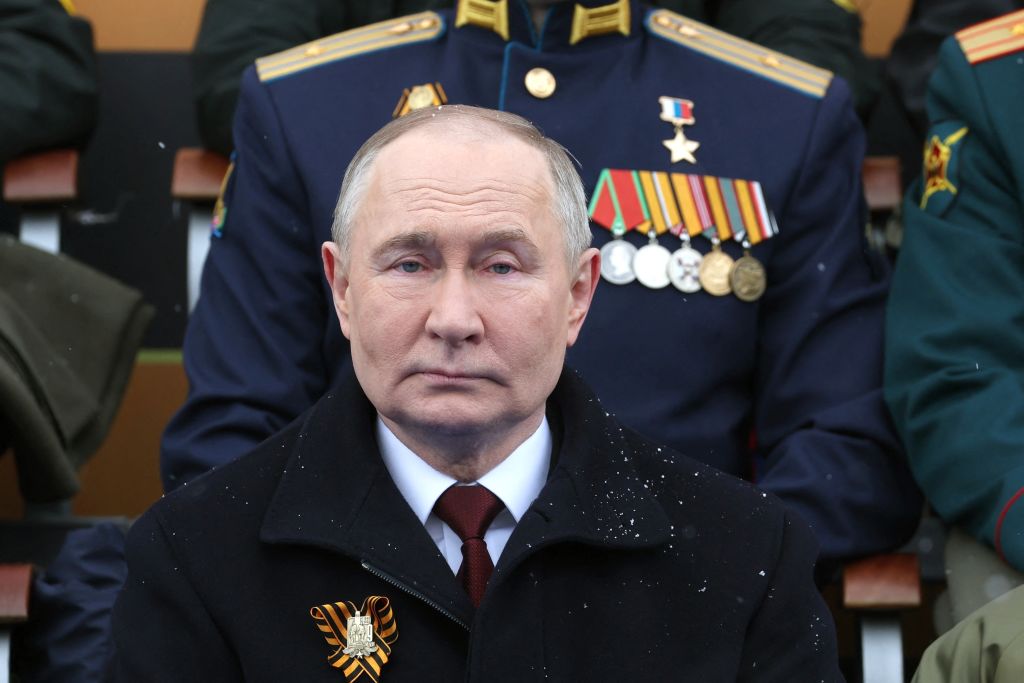Yevgeny Prigozhin’s greatest wish finally came true late on Sunday, though he was not around to see it. Nearly a year after the Wagner boss’s rivalry with Defence Minister Sergei Shoigu and Chief of the General Staff of the Armed Forces Valery Gerasimov degenerated into armed insurrection, the Kremlin announced that Shoigu had been removed from his post. First Deputy Prime Minister Andrei Belousov has taken his place, while Shoigu has been shunted into the position of Secretary of the National Security Council, replacing the hawkish ex-FSB chief Nikolai Patrushev, whose own career prospects remain unknown.
The move was not entirely unexpected, coming just weeks after the very public arrest of Shoigu’s ally and deputy Timur Ivanov on corruption charges. What’s more, Shoigu and Gerasimov won their reputations for incompetence as much through their own battlefield failures in Ukraine as they did thanks to Prigozhin’s expletive-laden tirades. Indeed, the news of Shoigu’s removal came as an apartment block in the Russian city of Belgorod partially collapsed, reportedly due to Ukrainian shelling.
While the benefits of removing Shoigu are clear, Putin was spotted giving him the cold shoulder as far back as June, raising the question of why this decision was made now. It could be a reflection of the President’s dissatisfaction with Russia’s grinding battlefield progress, or he may be seeking a radical shake-up of his military elite in anticipation of this year’s expected summer offensive.
However, the clue to Putin’s war aims may also lie in his choice of replacement. At first glance, Belousov seems an unusual choice for defence minister — a Soviet-trained economist with a reputation for technocratic competence, he is a civilian lacking in military experience. This is not wholly unusual: Shoigu himself is not a career soldier, having served as minister of emergency situations, while the role of defence minister is more administrative in nature than the military planning required of the chief of the general staff.
The nomination of an economist suggests Putin is settling in for a long and arduous fight in Ukraine, the war to be won not on the battlefield but on the balance sheet. Explaining the appointment, Kremlin spokesman Dmitri Peskov said that the leadership wanted an economic official at the helm of the Defence Ministry after Russia’s security budget hit 6.6% of GDP.
Peskov stressed that “this isn’t a critical number for now” but nonetheless “demands special attention” and “it’s very important to put the security economy in line with the economy of the country”. As such, Belousov’s role appears to be part of the broader movement to put Russia’s economy on a long-term war footing, the new Defence Minister reining in defence spending and ensuring a steady stream of shells reaches the front line for the prolonged war of attrition to come.
That is not the only sign that Putin is putting the emphasis on efficiency. The arrest of Timurov — nicknamed “the King of Kickbacks” — and now the appointment of a man known for taking a hard line on graft both suggest that the Kremlin may genuinely be cracking down on corruption in the military. Putin may be worried that, as Moscow pours $117 billion into defence spending, the corruption endemic to the Russian Armed Forces could result in it being funnelled into the pockets of officers rather than funding the smooth, well-oiled military machinery he so desperately requires.
All the same, Belousov’s appointment is unlikely to signal any radical alteration in Moscow’s defence policy. Russian independent media outlet The Bell claims he is a hardline defender of the state, and an imperialist who supported 2014’s annexation of Crimea and shares his leader’s view that Russia is surrounded by “a ring of enemies”. That is not the only reason Kyiv should worry — with Belousov likely to want an ally alongside him, Gerasimov is set to be next out. More competent figures such as “General Armageddon” Sergei Surovikin or Commander of the Airborne Troops Mikhail Teplinsky may be promoted. While he may look more like an accountant than a general, the elevation of this bureaucrat should leave Ukraine concerned.











Join the discussion
Join like minded readers that support our journalism by becoming a paid subscriber
To join the discussion in the comments, become a paid subscriber.
Join like minded readers that support our journalism, read unlimited articles and enjoy other subscriber-only benefits.
Subscribe